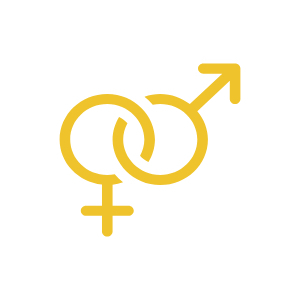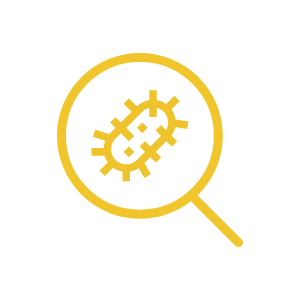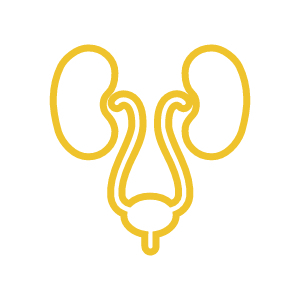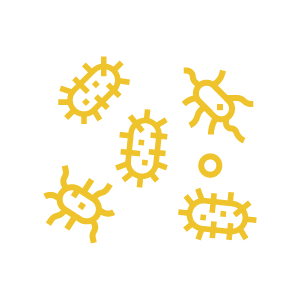Diagnosis & Prognosis
The diagnosis of acute uncomplicated symptomatic cystitis (AUC) is based on signs, symptoms and anamnestic data collection. RECAP
1 in 2 women of all ages experience at least one episode of cystitis during their lifetime.
Urine dipstick testing is able to increase diagnostic accuracy, but is not essential and should only be performed in the following situations:
- Suspected acute pyelonephritis
- Symptoms that do not resolve or recur within 4 weeks after the completion of treatment
- Women who present with atypical symptoms
- Pregnant women
The ACSS is a validated questionnaire which has recently been developed to:
- Accurately assess the severity of symptoms and their impact on Quality of life
- Help differentiate between other urogenital disorders
- Monitor treatment efficacy
It is designed to promote (self) diagnosis and to help patients seek for medical advice.
ACSS is linguistically and clinically validated for a number of countries.
Please refer to the ACSS website for more details.
Complicated Urinary Tract Infections
Complicated UTIs are believed to result in an infection that will be more difficult to eradicate than an uncomplicated infection.
Complicated UTIs are related to:
Symptoms
Cystitis
Cystitis is the most common type of UTI, caused by a bacterial infection of the bladder.
Acute uncomplicated symptomatic cystitis (AUC) will often clinically present with:

- Acute dysuria (painful or difficult urination)
- Increased urinary frequency and urgency
- Suprapubic tenderness without fever
Pyelonephritis
Pyelonephritis can present with the following symptoms:

Fever (>38°C)
Chills
Flank pain &/or costovertebral angle tenderness
Nausea &/or vomiting
Pregnant women with acute pyelonephritis need special attention, as this kind of infection may not only cause anaemia, renal and respiratory insufficiency for the mother, but can also cause frequent preterm labour and birth.
Risk factors – From cystitis to recurrences
Recurrent cystitis is defined as episodes of lower UTI infections occurring with a frequency of at least 3 episodes per year or at least 2 in 6 months.
Premenopausal woman…

• Sexual activity
• Use of spermicides
• Life time history of UTIs
• History of UTI during childhood
• A mother with a history of UTI
Postmenopausal women…

• Oestrogen deficiency
• Atrophic vaginitis
• Increased post-void urine volume
• Urinary or faecal incontinence
Predicting recurrence
Recurrent cystitis should be managed carefully to prevent new symptomatic episodes and complications.
LUTIRE is a nomogram that has been developed to help predict the recurrence risk at 12 months by analysing:

- Number of sexual partners
- Bowel function
- Type of pathogens isolated

- Hormonal status
- Number of previous UTI recurrences
- Previous treatment of ABU
UTI complications

- Recurrent cystitis could lead to complications, as well as being a risk factor for the development of upper UTIs, although the risk is very low
- Even if an infection by a resistant bacteria is more difficult to treat, this is not considered a risk for complicated UTI
Complications
Pyelonephritis and urosepsis

Misdiagnosis of uncomplicated cystitis or progression to complicated UTI can lead to acute kidney injury, pyelonephritis and sepsis.
Change in microbiota

The antibiotics used to treat UTIs have a broad spectrum of action and are effective not only against the uropathogen, but also on healthy microbiota. This results in a number of collateral damages, which lead to more difficult to treat and / or recurrent cystitis / UTIs: RECAP
- A decrease in the species richness and diversity of the microbiota
- Selection and spread of antibiotic-resistant microorganisms
- Transfer of resistance amongst commensal bacteria and potential uropathogens
Stress urinary incontinence

rUTIs are associated with stress urinary incontinence (the involuntary leakage of urine from the bladder accompanying physical activity, which places increased pressure on the abdomen).
- Acute UTIs are associated with acute urinary incontinence (both stress and urge incontinence) in up to a quarter of infected women RECAP
Psychological impact

Psychological issues may arise due to stress and impairment of daily life.
- Women with recurrent UTIs showed a 10-fold increase in psychiatric symptoms compared to the normal population
RECAP = Where a claim is followed by the RECAP, this means that this claim is endorsed by the RECAP board of experts.



